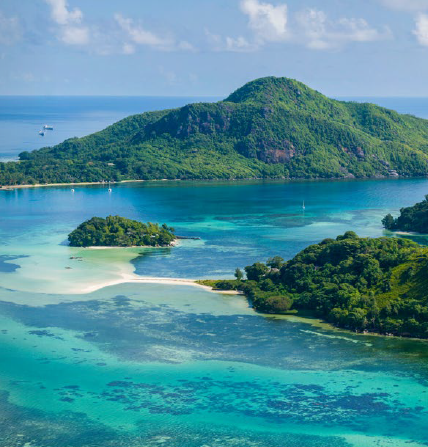Small island economies: The WCO’s renewed focus
Small island economies face distinct challenges, demanding bespoke economic and developmental support. Kunio Mikuriya, secretary-general of the World Customs Organization, details the work that is underway
The World Customs Organization’s initiative on small island economies was launched in June 2018 to provide the customs administrations of such economies with tailor-made capacity-building and technical assistance that would help them curb illicit trade and smuggling more effectively, while facilitating trade flows and reducing cross-border business costs.
Various challenges
There is no formal definition of small island economies. Their ‘smallness’ often refers to the size of their population, their land mass or their share in international trade. Depending on their level of development, such states or jurisdictions are loosely referred to as small economies, small and vulnerable economies, small island developing states, or structurally weak, vulnerable and small economies.
They were recognised in 1992 as a distinct group of developing countries facing specific social, economic and environmental vulnerabilities at the United Nations Conference on Environment and Development, also known as the Earth Summit, held in Rio de Janeiro, Brazil. The UN’s Millennium Development Goals also mentioned small island economies.
The challenges they face, in varying degrees, include:
- Lack of connectedness to global value chains, negatively affecting their share of international trade and investment;
Remoteness from large markets, resulting in increased transportation costs; - High communication costs, often exacerbated by poor maritime and air connectivity;
Inadequate institutional capacity, hindering their accession to international conventions; and - Proneness and vulnerability to natural disasters, due in part to climate change.
They are also disadvantaged by a narrow range of resources, excessive dependence on international trade, overuse of resources and their premature depletion and domestic markets that are too small to provide significant economies of scale.
They rely heavily on imported goods, which often translates into high costs of living, and they have limited export volumes with a narrow range of products. Many of these disadvantages are magnified by the fact that not only are they small, but they also often comprise a number of small islands.
Key achievements
In order to support the customs administrations of small island economies in effectively tackling these challenges and to respond better to their specific needs, the WCO has been providing customised capacity-building and technical assistance, through more than 60 activities over the 2017/2018 financial year.
To enumerate some, a workshop on the Revised Kyoto Convention and other key WCO instruments in June 2017 gathered representatives from six small island economies in the Pacific, including a few non-WCO members. This led to Kiribati and Vanuatu acceding to the convention. In 2018, a workshop for countries in the Caribbean generated further interest in the convention.
Some small island economies have been assisted by the WCO’s Cargo Targeting System and its National Customs Enforcement Network, which have enhanced their data analysis and targeting capacities. In addition, the Global Travel Assessment System, a standardised system for collecting and analysing passenger data, was implemented in the Maldives in 2018.
Going forward
The WCO will continue to engage with the customs administrations of small island economies, in order to obtain a deeper understanding of their current realities. This engagement will facilitate the development of tailor-made and effective solutions that respond to their unique peculiarities and challenges.
The WCO intends to organise regional workshops for the customs administrations of small island economies in the Pacific and Caribbean, and further engage with relevant regional and international bodies to collect more national and regional experiences and practices.
Specific guidance for these administrations will also be developed. In this regard, the specificities, challenges and priorities of small island economies will be analysed to determine areas of change and measures to be taken, while keeping their diversity and needs in mind. The guidance is being developed in close collaboration with various international and regional organisations.
In addition, the WCO will develop customised capacity-building programmes for the customs administrations of small island economies based on their identified needs and priorities. The WCO’s regional structures will assist in delivering these programmes, including train-the-trainer courses.
Regarding accession to the Convention Establishing the Customs Co-operation Council (the WCO’s founding instrument) and other WCO instruments and tools, the organisation will support small island economies in tackling the difficulties they face in this regard.
Although encouraging and supporting small island economies to accede to WCO conventions is important, it is equally important that they not only leverage existing WCO instruments and tools, but also participate in the development and enhancement of those tools to reflect their perspectives and aspirations.













